The mighty heart in person – Mariane Pearl
Daniel Pearl's wife talks about him, about Pakistan, about Malala.
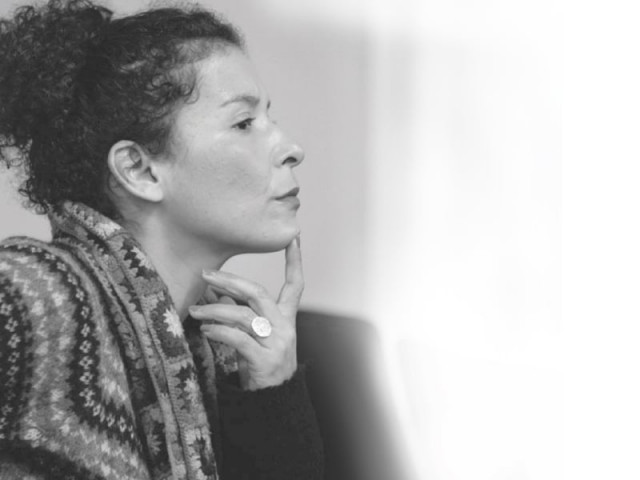
Daniel Pearl was murdered this day, eleven years ago. Here, his wife talks about him, about Pakistan, about Malala, and about how she has managed to stay “the same person”.
“Hi. I’m Mariane Pearl,” she says, introducing herself to a room full of journalists from the world over attending a Reuters training course in Barcelona.
At the course, I’m representing Pakistan – a country where her husband, Wall Street Journal journalist Daniel Pearl, was abducted and beheaded by terrorists. Where a pregnant Mariane spent the toughest months of her life.
My feelings are a strange mix of awe, excitement and misplaced guilt. I recall a write-up Mariane had written for the New York Times, in which she wrote of her impressions of Pakistan. “Danny and I were told that most people did not share the opinions of fundamentalists.
But this reassuring voice of the moderate majority was nowhere to be seen or heard.” Eleven years later, has anything changed in Pakistan? This collective silence is the source of my guilt. Too often, we are silent, apathetic and unaware.
Mariane has not changed much. Signature curly hair, tied-up tightly, predictably. Her fitness is deceptive – she does not appear to be a woman in her forties. To teach us, she cycles daily to Poblenou, a far beach end of Barcelona, for more than an hour.
Initially, she is just Daniel Pearl’s wife for me. The woman whom Angelina Jolie played in the docudrama “A Mighty Heart”, based on Mariane’s book of the same title. But over the coming days, she becomes more than that. A true story-teller. A passionate journalist. Humble. A little guarded. A woman at peace with herself.
How has that whole experience changed her? “Hopefully not so much. I may have grown and evolved but essentially I am the same person. If Danny were to come back, he would recognise me,” she says.
Mariane never revisited Pakistan but is not averse to the idea. She has not expressed anger for Pakistan or Karachi on record. How has she been so magnanimous is a question that she answers even before I ask her. “The people who murdered Danny have not been able to influence my feelings. Why would I hate Pakistanis? I have no reason to. I have very close relationships with some Pakistanis. Through individual dialogue and friendship these people have proven their value as human beings. No one can change that.”
“During this ordeal,” she had wrote on April 19, 2002 for the New York Times, “I was surrounded by individual Pakistanis and Muslims, as courageous and beautiful as those terrorists were ugly and without souls.”
Her refusal to give in to prejudice is remarkable. “In my life, I have experienced all kinds of things which could have high-jacked my interpretation of the world. But thankfully those things were not strong enough to do that. Otherwise I wouldn’t be free. Neither would my son,” she says.
Currently Mariane is writing a family memoir. The book promises to have a lot of Cuba, France, Mariane’s mother and more. “I have a very funky family story,” she says.
A mother’s pride is written all over her face as she shows me a picture of her and Daniel’s handsome ten-year-old son, Adam. Mariane is currently living in Barcelona. “I had to decide on a place where Adam would be happy and comfortable. Barcelona has beautiful weather, the ocean, mountains. Adam can learn Spanish here. This is the first time I made a choice to live somewhere for the quality of life and not for work.”
“Adam is very much like his father – easy-going, fun-loving. A beautiful human being,” she goes on to say. Adam is the son of two celebrities and has traveled a lot for a child his age. “He has met heads of states, but he has also met normal people and has been on reporting trips with me. He has seen the real world. He doesn’t have a hangover. I have worked hard at keeping him grounded,” she shares.
A part of Mariane is still very connected with Pakistan. “I have people there I care for. You need to really know Pakistan in order to understand Pakistan. You don’t know a country through the news. You can know it through person-to-person dialogue. I don’t rely on the media to know what I know about Pakistan, to feel what I feel about Pakistan,” she says, expressing how it hurts her when people stereotype Pakistanis.
Mariane believes that the power of dialogue is the only way conflicts can be resolved. “It’s especially true for a country like Pakistan. Communication! In both Pakistan and the USA, I have closely observed people on the top and the bottom rungs of society. The bottom can still communicate with each other but the top don’t understand each other at all. That’s scary!”
But she sees hope for humanity in the fact that people of the world continue to reach out to each other, and gives the example of friendships between the people of India and Pakistan, between the people of Israel and Palestine.
Pakistani women, she feels, like women elsewhere are a “very very powerful asset” for the country, especially in terms of how they can influence the men. “A country cannot go wrong by investing in women,” she says.
The conversation moves onto talk about the young Malala, and Mariane is all charged up. “Malala was a hero before she was shot, not because the Taliban shot her. There are a lot of Malalas out there…incredible young women… fearless, strong, a powerful generation to rely upon. Find them and show Malala that she’s not alone…that her cause is being seconded.”
She feels that unnecessary pressure has been put on Malala’s young shoulders by making her an icon. “She doesn’t need that, she’s just a 14- year-old kid. All Malala said was ‘I’m a girl, I have the right to have an education, otherwise I will have a miserable future’.” Perhaps Mariane can relate to what is happening to Malala. “ The media can be like vultures. I’ve been through that. I know how that feels. I feel like protecting Malala from that. The very minimum we owe her is respect.”
In the prologue of her book A Mighty Heart, Mariane said to Daniel, “I write this book to show that you were right: The task of changing a hate-filled world belongs to each one of us.” She reaffirms that undertaking in 2013. “Once you believe this, you cannot go back and hate again, for that would be the biggest defeat. It would mean that you are being manipulated (into hating). And I refuse to be manipulated by anyone.”
Published in The Express Tribune, February 1st, 2013.


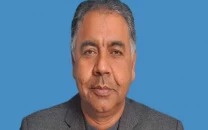
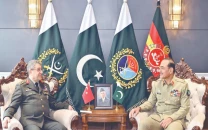

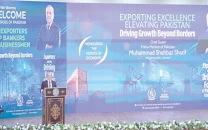
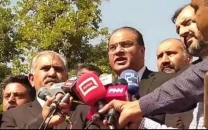












COMMENTS
Comments are moderated and generally will be posted if they are on-topic and not abusive.
For more information, please see our Comments FAQ